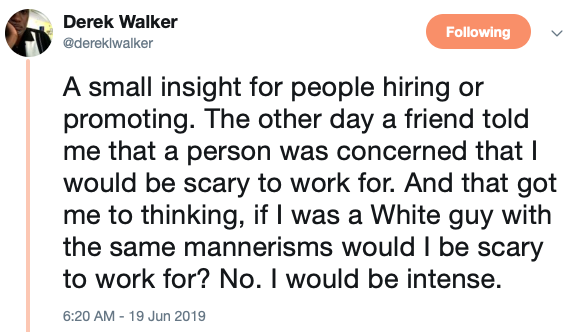
Startup Founders: Stop Hiring Marketing Caricatures

I see one type of error repeated time after time by startups, entrepreneurs, and small businesses: They hire caricatures of marketers.
This is not to say that larger businesses are immune to this mistake — they’re not. But the mistake is far more devastating given the volatility of challenges these smaller entities face.
Here are a few of the common caricatures of Marketers:
- The TedTalk Guru: This marketer strides confidently on a stage delivering over-simplified theories while claiming they can make perfection. Of course, claims are easy but marketing is hard. Still, engineers and other startup non-marketers have run into this type so often at trade shows and conferences or been pestered by them as sales people that they come to believe that this caricature MUST BE the right answer.
- The Engineer: The right marketers will make science, engineering, and manufacturing oriented founders uncomfortable because great marketers are NOT engineers and should not think like engineers. There are two types of shallow: The TedTalk shallow and the engineer who never learned to be a marketer. Don’t opt for either of these. My background started as an engineer. Today I confuse engineers because they may expect I’ll be a lot more like them. I’m not and that’s intentional. I fully committed to marketing because it is important that I’m NO LONGER an engineer.
- The Financial Analyst: There are certain startups who want to believe that marketing is an analytic job. So they hire people tremendously focused on estimating market sizes and other detailed calculations to be used with potential investors. Except, they do this before they figure out who cares enough to buy the product. Again, they’ve made themselves comfortable at the expense of their own success.
- The Great Communicator: More and more these days there seems to be a belief that “marketing = communication.” That’s an immediate recipe for disaster. Marketing involves all aspects of learning from the market in order to develop viable products which will appeal within a large enough market to matter, can be distributed effectively to that market, where that market can be brought to buy the product at the right price, and sometimes involves communication. Wait. Aren’t those the 4Ps? Of course they are. The 4Ps remain the most universally applicable way to look at the breadth needed from marketing.
- The Last Success: Many startups look within the “industry” they’re working in to hire marketers. Except, if a startup is doing anything radically different, this is a core mistake. While there are superb marketers out there in any industry, there are also a great many who know only one way the market — the one that made them successful. A startup needs their marketers to bring an openness to do something new — to find the unexpected success in an unexpected way — perhaps even a way that someone might accuse of being “old” (like TV or direct mail or catalogs or a sales force).
The Right Marketing Temperament. While I’ve listed specific errors with each type, ALL of the caricatures miss the subtleties of the right marketing temperament.
A first piece of advice for startups is to be especially open to people you wouldn’t expect to be a marketer. Be aware that if you are looking for locked-in confidence — absolute belief in absolute ideas — then you’re going to fail.
Especially, look for marketers who are thoughtful and challenging while also knowing how and when to take firm, decisive action. But be careful: The decisive action should be after considerable thought and only when appropriate (action taken too early is as wrong as action taken too late).
Why all this carefulness? Of all marketing situations, it’s startups, small businesses, and entrepreneurs who face the most volatile situations — where a small mistake in the opening salvo of marketing can have repercussions 1, 2, 3, and 5 years down the line.
Any marketers whose experience is only in large companies will lack that sensitivity — long term successful products are remarkably immune to the kind of wild swings which errors, accident and change can produce for a smaller business.
Accept and embrace the healthy tension between startup mentality (bullish chutzpah which drives a “do or die” founderdom) and the more subtle temperament needed from marketers who will drive your startup’s success.
The marketing temperament comes out differently in every situation. But there are a few common things.
- The ability to wait on decisions until we know enough to make them.
- The ability to look for bigger strategic approaches to guide the tactics. Even a startup should NOT be relying primarily on tactics — but on a broader vision of the future for the product and company.
- The instinct to know when a decision should be made and when it should be put off.
- The ability to stick with decisions after making them — until there’s very clear evidence they need to change.
- The ability to demand that strategy be able to be executed and the demand that tactics not dominate strategy.
- An aversion to too much reliance on data. Great marketers for a startup do NOT believe that data is the key to marketing. Rather, they know that data fills only a few specific roles in marketing. Marketing is about human beings (customers) not data unless it offers some unique insight.
- In fact, they need to presume that the data has major errors for a startup. Why? Because what you’re doing hasn’t been done before so data has never been collected to apply to your specific questions. All data is secondary data in this case.
- A willingness to believe the instinctive and to listen to the qualitative while also seeking other evidence to back up what they learn.
- Knowledge that it’s absurd to project market size until AFTER considerable marketing has been done. How can you project market size before knowing WHO will buy the product?
- The ability to thrive within a team of unusual people who don’t fit stereotypes.
As a last bit of marketer advice, it is NOT my experience that investment firms have good sensibilities for choosing marketers. In face, I remain stunned by the fundamental marketing errors embraced by VC firms — errors which were clear even without the benefit of deep market research.
Hiring Caricatures Affects Diversity and Lack of Diversity Reduces Your Chances for Success
There are excellent new studies out which show that teams which have more diversity (all types including neuro-diversity) are more successful. This Harvard Biz Review article is one good starting point.
Marketing is not the only area where there are problems hiring caricatures. I focus on marketing because it’s where I am hired to give advice to clients. But everywhere and in every job there are subtle ways we allow caricatures to affect our hiring.
I ran into this tweet from @White_Owly just this morning and I couldn’t agree more:
Bias is picturing the person you wish to recruit.
— White Owl (@white_owly) June 24, 2019
What biases are built into the mental pictures YOU make before recruiting? Does it include race, skin color or gender? Does it include personality type or body type? Do you imagine golfers or runners or surfers? All of these are biases — and they’re biases that can lead you to pick the person that makes you comfortable not the person you need.
Racial bias remains the biggest error of bias. And it gets more difficult to manage as the biases become more submerged — yet still surprisingly strong. Derek Walker points out the subtle ways the advertising business blocks African-Americans and others from succeeding. This AdAge article discusses what his Black History Month effort spotlighting black advertising professionals. I recommend following him. (Derek Walker on Twitter)
The Person Who is Most Helpful Delivering Success is Not Likely the One Who Makes You Most Comfortable
Far too many organizations — even, or especially, startups — love to hire the people who keep the peace. They love people who make everyone feel comfortable by never asking the hard questions.
It is also these people who lead companies into failure.
So the next time you’re looking for a marketing guy for your startup, let me make a suggestion: Look for a marketing nerd. No. Not someone deeply involved in the technical (I did NOT say “engineering nerd” or “science nerd”). Look for a marketer so dedicated to their field that they read a tremendous amount — especially outside of business books — and have spent considerable time looking at the history of companies and new product introductions. Those are the people with the innate skills to discover the surprising answers you need to drive far larger success.
©2019 Doug Garnett — All Rights Reserved
Through my company Protonik LLC based in Portland Oregon, I advise a select group of clients to drive success with better marketing of new and innovative products. I also work with clients attempting to bring new life to Shelf Potatoes or take their existing products to new markets. You can read more about these services and my unusual background (math, aerospace, supercomputers, consumer goods & national TV ads) at www.Protonik.net.
Categories: Business and Strategy, consumer marketing, Innovation, marketing


Posted: July 4, 2020 20:43
The Complicated vs the Complex: Very Different Types of Experts | Doug Garnett's Blog